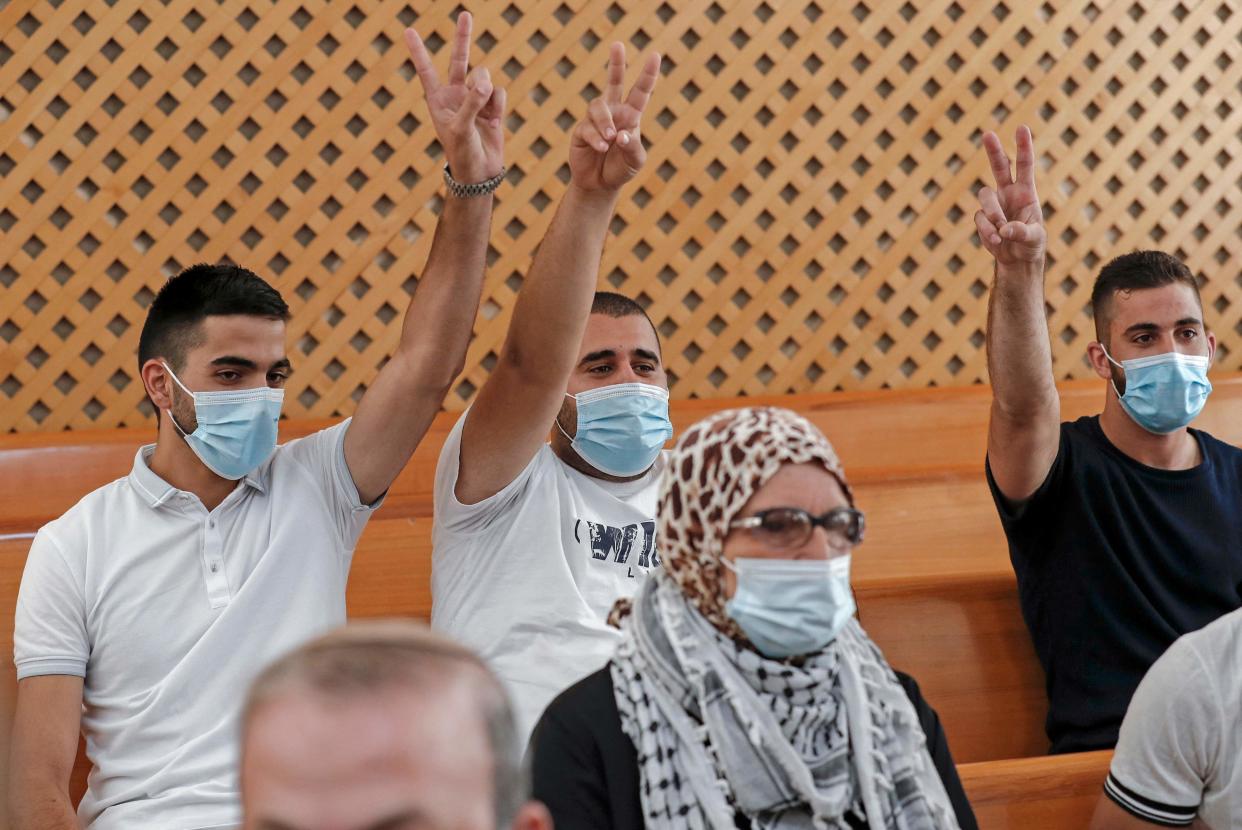Israel’s top court proposes Sheikh Jarrah residents can stay in their homes in ‘compromise’ solution

Israel’s top court has proposed that Palestinian residents of Sheikh Jarrah facing expulsion in occupied East Jerusalem be allowed to stay in their homes under a “protected tenant” status, meaning they would have to accept Israeli ownership of the land and pay rent to a settler association.
The Supreme Court was expected on Monday to reach a decision on the high-profile controversial case, in which four Palestinians families are facing imminent forced eviction from their homes to make way for Jewish settlers. It is an action that Rupert Colville of the United Nations has said “may amount to a war crime”.
But the long-awaited session ended with the court putting forward a “compromise” resulting in a deadlock, as the attorney general requested more time to consider the cases.
Lower Israeli courts have approved the forced evictions of the four families in the past, ruling that their houses were built on land owned by Jews before Israel was established in 1948, despite worldwide concerns about violations of international law.
The threatened expulsion was the volcanic heart of a surge in tensions in Jerusalem which saw protests by Palestinians and crackdowns by Israelis, including the storming of al-Aqsa mosque, escalate into an 11-day war between Palestinian militants in Gaza and Israeli military.
A ceasefire took effect on 21 May, but the long-running campaign by Jewish settlers to evict dozens of Palestinian families has continued.
The settlers have been waging a decades-long campaign to evict the families from densely populated Palestinian neighbourhoods just outside the walls of the Old City, in one of the most sensitive parts of east Jerusalem that Palestinians hope will become their future capital.
The settlers say the homes are built on land that was owned by Jews prior to the 1948 war surrounding Israel’s creation. Israeli law allows Jews to reclaim such property, a right denied to Palestinians who lost lands and homes in the same conflict.
It is a point that Human Rights Watch believes “underscores the reality of apartheid that Palestinians in East Jerusalem face” and a point UN has said is “inherently discriminatory”.
Jordan controlled east Jerusalem from 1948 to 1967.
The Jordanian authorities agreed with the United Nations to build 28 homes for some of the families made refugees in 1948, on land in Sheikh Jarrah previously held by the Jewish associations but taken over by the Jordanian Custodian of Enemy Property.
These families were promised legal land titles but apparently never received them. The families say Jordanian authorities offered them their homes in exchange for giving up their refugee status.
Watch: UK, Israel blame Iran for deadly drone strike on oil tanker
Read More
‘All evidence’ points to Iran for drone attack that killed British citizen, says UK government

